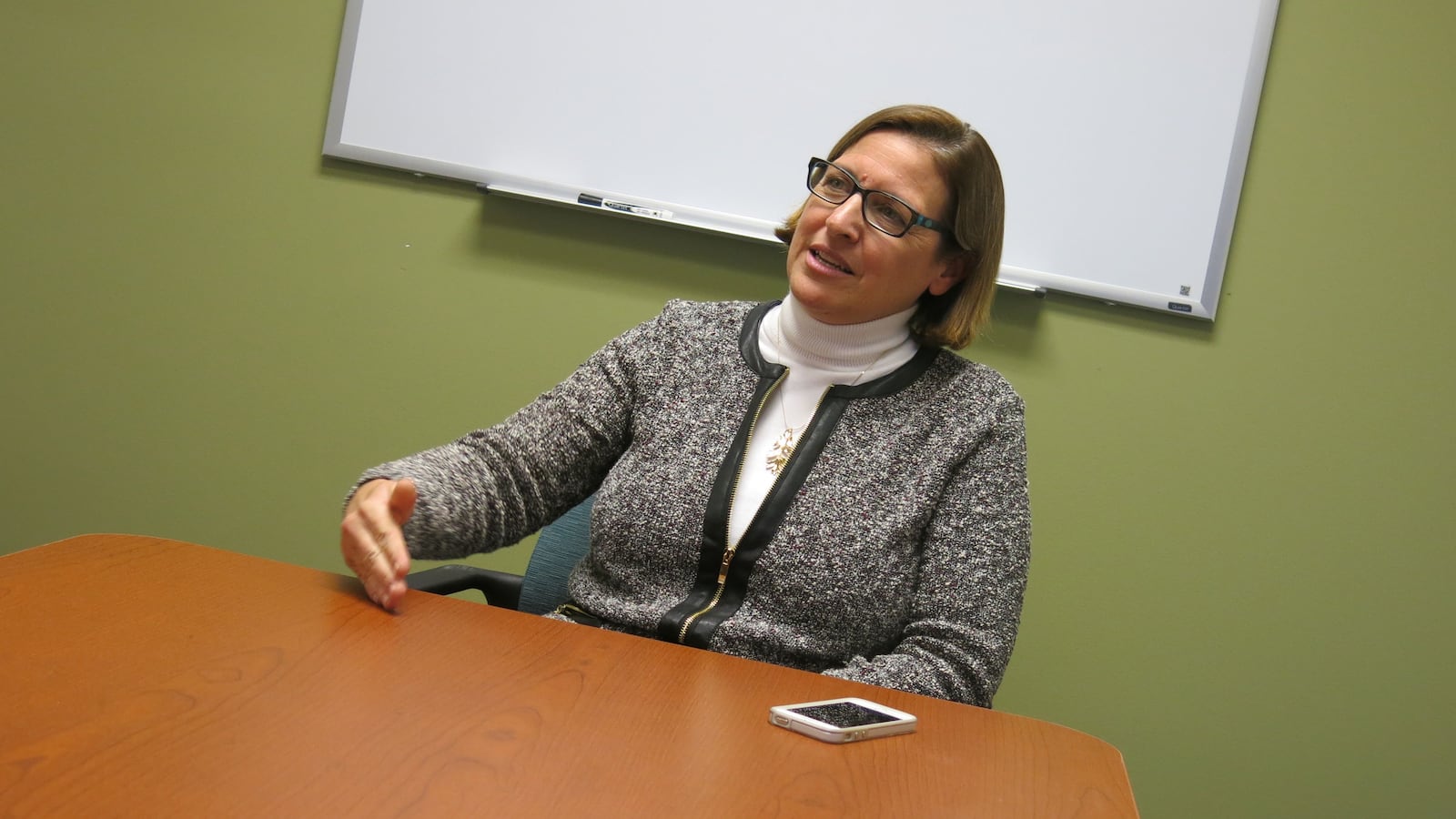When Elizabeth Hinde signed on to be the first dean of Metro State University of Denver’s brand-new school of education earlier this year, she took responsibility for a new vision of what is already the second-largest teacher education program in Colorado.
The new school is focused on at preparing students to teach schools serving multi-cultural, bilingual, and historically underserved populations. Right now, it places teachers in 17 districts and charter schools in Colorado.
Chalkbeat sat down with Hinde to talk about her goals for the program, what’s changed in teacher education in recent years, and what’s stayed the same.
On what to expect from MSU:
We’re establishing residency models. But people say “residency model” like it’s one model — but they have to be different. The school of education needs to make a local impact, otherwise what’s the point? We’re here in Denver, we need to serve Denver and the area. The residency models we’re designing fit Denver. The first one will start next year…they follow the district calendar. Students will co-teach with a mentor teacher….We’ll also build our programs in JeffCo and Aurora…We want to expand pathways into the classroom. We will increase our enrollment, we will grow….There are so many creative things we can do. There are a lot of professions where they need the skills, the expertise, the knowledge we have in the school of education. We can share our expertise with other programs. There are schools, religious and private, that don’t require state certification that still need to know about child development….I’d like to see us provide professional development.
On alternative training programs:
If you look at history, there have always been multiple pathways to being a teacher. I embrace the good ones. We don’t want to sacrifice quality for convenience. But some of these alternative programs that have popped up, they popped up because teacher prep wasn’t meeting needs. If they can meet needs we can’t, let’s partner rather than conflict.
On funding education schools:
I’d like to see us funded not based on input but based on output — some sort of metric where the funding’s not based on how many students you have exclusively, but on what’s the impact of your students in the field. A metric that says we’re focusing on quality, not quantity.
On what teachers need to know before they go into the classroom:
Teachers need to be able to meet the needs of all kids. Most schools do inclusion now, so ELLs and special needs students are in the classroom. Plus technology. Teachers need to be go in and use a smart board right away. They have to understand that kids have cell phones, period—figure out how to use them well. And teachers, you’re going to be filmed. What they’ll come out of our school of education with, first of all, is real life experiences with good teachers in real classrooms. The goal is, their first year they’ll be more like second year teachers, or third year teachers. They’ll have this experiential base but also a fund of resources, cognitive as well as physical, in how to meet the diverse needs in a school. They’ll understand as teachers that they’re in a fishbowl, everyone’s watching us. So we have to tell our story – not the fluff, but the real story of being a teacher.
On Common Core:
Teacher prep has always had to deal with curriculum trends and curriculum changes. Some are new trends and some are actual changes. We’ve always had to be very nimble — that’s something people don’t understand. We have to be aware of policies, politics, trends, and how kids learn. As far as Common Core, yes, we do need to prepare teachers to teach Common Core. It promotes a different way of thinking. If we could just cut away the politics and look at the type of thinking the Common Core is promoting, it’s very good. We need to prepare our teachers to teach high-level thinking and not just teaching outside the box I think every citizen has to have to be able to think mathematically — that’s what the Common Core could do if you could cut away the noise. At Metro, the faculty who were here before I got here and continuing now have been adjusting the curriculum to adapt.
On assessment:
Tests are being overused. You’re taking time away from teaching. Teachers assess all the time, good teachers do, which is why there’s that unique teaching exhaustion — you’re assessing, are they getting what I’m saying, do I have to switch and get a different tool. But when you throw in test after test after test… I think the root is that people don’t trust that teachers know what they’re doing. But they do! Let them do what they know. I’m not saying throw them off altogether, but when the whole month of April is about testing there’s something wrong. If you give a test and everyone fails, the problem is the test.
On what gives her hope:
The next generation, the kids. It’s always about the kids. I came here because I wanted to come to a place in a city — where it’s defined more by its potential than by its tradition. Even though there’s some cynicism right now and some sarcasm around teaching profession, there’s a sense among teachers that there’s that one student you might make a difference for. There is this passion, this desire, this drive to make a difference in the next generation that you can’t find in any other profession.

